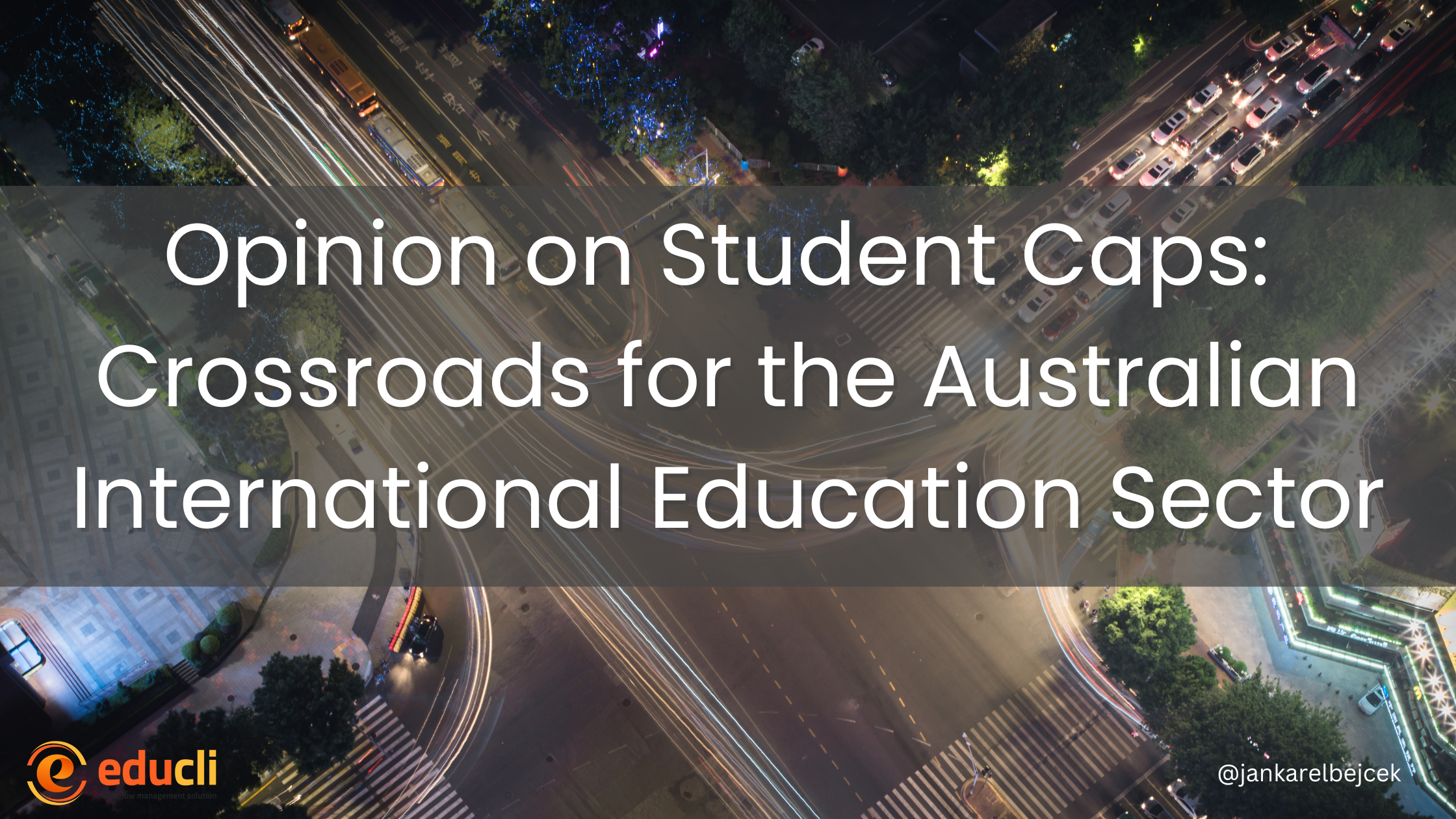Opinion on Student Caps: Crossroads for the Australian International Education Sector
Australia has long been heralded as a prime destination for international students, offering top-tier education and a culturally enriching experience. However, the recent announcement of student caps poses a serious questionmark not only to the higher education sector but also to the broader sentiment of Australia as an international education destination.
The Canadian cautionary tale
Canada provides a pertinent example of how restrictive policies can harm a nation’s educational brand. Even in programs exempt from caps, such as Master’s and PhD programs, there has been a noticeable shift in student sentiment. The perception of an increasingly hostile or restrictive environment can lead to brand damage, deterring even the most skilled and qualified students from pursuing their studies. If Australia implements similar caps, it must tread carefully to avoid replicating Canada’s mistakes. The consequences could be far-reaching, discouraging students across all levels of study and ultimately damaging Australia’s global reputation as a welcoming educational hub.
Blame or misdirected policies
Recent moves by the Australian government to regulate higher education and training sectors more heavily reveal a troubling trend. The government appears to be shifting blame onto universities for national issues like housing shortages and immigration-related concerns that have little to do with the educational sector.
Blaming universities for housing shortages is particularly misguided. International students paying premium rent in inner cities is not the root cause of skilled labor shortages delaying housing projects across the country. Moreover, the narrative that international education providers are complicit in immigration rorts is largely a case of blame-shifting. There may be a small number of dubious institutions exploiting international students for profit rather than genuinely contributing to education, however the real issue lies in the actual immigration and education policies allowing for such behavior.
The economic necessity of international education
Australia’s economy, particularly in sectors like healthcare, construction, and community services, relies heavily on skilled workers. The VET sector is crucial for training the nurses, bricklayers, chefs, electricians, and other essential workers that the country needs. However, the current discourse around student caps risks undermining this vital training ground. The Australian population alone cannot fulfill the nation’s demand for skilled labor, nor can public providers meet the training by themselves.
International students are an indispensable part of Australia’s workforce, particularly in areas where there is a significant skills shortage. By imposing student caps, the government risks choking off a crucial supply of talent that the economy desperately needs. Such a move could lead to a situation where essential services are understaffed, further exacerbating existing economic challenges.
Fear and anxiety among international students
Beyond the economic implications, the human cost of these policies cannot be ignored. Despite the proposed new Standards for Training Organisation which purportedly focus on student wellbeing, the current environment is nothing but far from it. Recently introduced changes led to arbitrary refusals, high visa fees and policies that caused fear and anxiety.
Some international students are terrified of leaving the country for fear they won’t be allowed back in. They are hesitant to have any academic or attendance issues that would lead to immediate cancellations. Students had their enrolments cancelled by providers for fear of costing them immigration risk rating. This atmosphere of terror is not conducive to learning and runs counter to the values Australia claims to uphold.
Is Australia fair?
Australia finds itself at a crossroads. The government’s approach to regulating international education needs to strike a balance between maintaining high standards and ensuring that Australia remains an attractive destination for international students.
The implementation of student caps, if done without careful consideration, risks causing significant damage to Australia’s brand and sentiment across all sectors of education.
internationaleducation hashtagstudyinaustralia hashtagstudentcaps hashtageducli





Leave A Comment